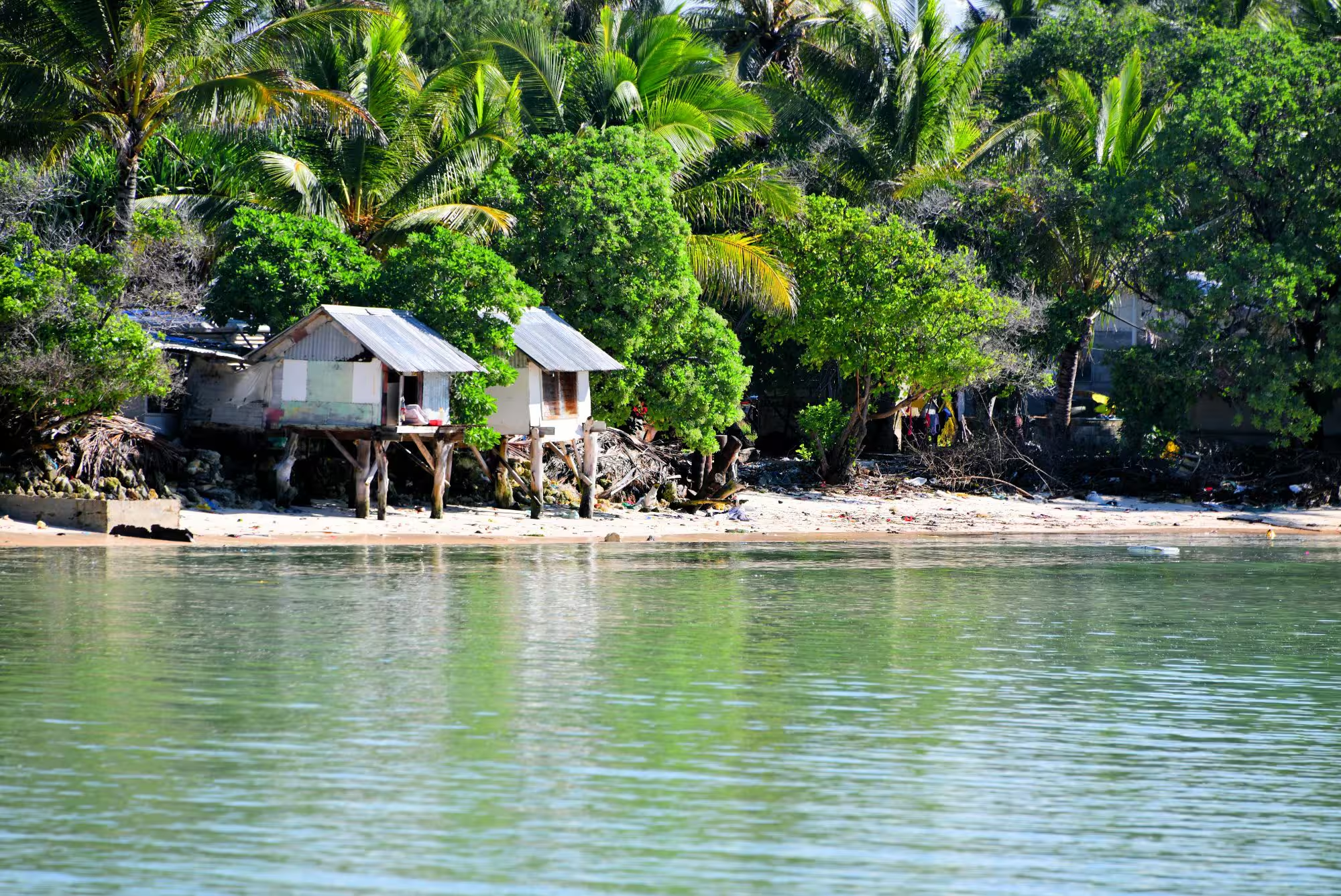Of the Sea: narratives and conceptualization of king tides in the central Pacific

Low-lying islands scattered across the world’s oceans and seas experience acute vulnerabilities to natural hazards. In line with the most recent Intergovernmental Panel on Climate Change (IPCC) reports, many islands are expected to experience increased exposure to natural hazards, such as tropical storms, droughts, and, specifically, the impacts of rising sea levels. Data based on mean sea level rise suggests that low-lying islands are already experiencing adverse impacts, and hence, low-lying island states are regarded as the climate change frontlines, Anthropocene islands, and sinking islands.
In the low-lying atoll state of Kiribati, straddling the equator and international dateline in the central Pacific, the indigenous i-Kiribati population, have a dependent relationship with the sea that exceeds mean sea level rise. Local knowledge constructed over millennia has allowed the population to adapt to extreme natural hazards, including abnormally high tides, known locally and increasingly globally as king tides. This project seeks to situate king tides firmly under the heading of natural hazards to find the nexus between the science in the dominant climate change concept of rising sea levels and society through the i-Kiribati conceptualization of king tides. The two overarching objectives aim to conceptualize king tide parameters and understand local perceptions and adaptation to the impacts of king tides among the i-Kiribati while investigating under what scenarios king tides become displacement and/or structure-damaging natural hazards.
The project will employ a Science, Technology, Society (STS) approach that offers insight into the connection between, what is often termed natural sciences, and the lived reality of society. This project will produce knowledge that adds to current island studies and disaster studies debates, specifically extending scholarship on the relationship between climate change, and Pacific lived experience.
